From the brilliant author of The Dragon Waiting and Growing Up Weightless, a novel that saw the cyberpunk future with stunning clarity, years before anyone else.
Originally published in 1980, the legendary John M. Ford’s first published novel was an uncannily brilliant anticipation of the later cyberpunk genre—and of the internet itself.
The Web links the many worlds of humanity. Most people can only use it to communicate. Some can retrieve and store data, as well as use simple precoded programs. Only a privileged few are able to create their own software, within proscribed limits.
And then there are the Webspinners.
Grailer is Fourth Literate, able to manipulate the Web at will—and use it for purposes unintended and impossible for anyone but the most talented Webspinner. Obviously, he cannot be allowed to live.
Condemned to death at the age of nine, Grailer must go underground, hiding his skills, testing his powers until he is ready to do battle with the Web itself.
With a new introduction from Cory Doctorow, written especially for this edition.
Please enjoy this free excerpt of Web of Angels by John M. Ford, on sale 4/30/24
Chapter 1
THE DARK LADY
The boy ran for his life, across the City Juvenal on the planet called Brass. Past lights and mirrors he ran, through blocks of shadow and dark glass, short legs running, small heart pounding, seeking a street to hide him from those that came after; for if the City would not have him he would surely die.
(Oh, said the serpent, thou shalt not surely die.)
He was blond, dark-eyed, dressed in soft parti-colored felts and high glossy boots turned down at the tops. To his chest he clutched a box covered in gray leather, resembling a large book; held it with both arms, looking more often at it than at the streets ahead, Finngers spread wide to grip as much of its surface as he could.
The City Juvenal sat on the shore of the great golden sea that gave Brass its name. It was a city of colors not too bright, of sins not too black, of comfortable means and reputation. Its people took Lifespan to stretch their years into centuries, and took other things to fill up those centuries, and sometimes quietly did certain acts that ended their Lifespanned lives all at once; but this was the City Juvenal, not New Port Royal or Granmarque or Wicked Alexandria.
So the black “oaters over the city were a strange sight, like dark clouds the size of a man’s hand, small shadows on the land. The Combined Intersystem Regulation and Control Executive was like a shadow. You could look away from it, or put it behind you, but there it always was; and the brighter the light shone upon it the starker and blacker it stood. The only way to be free from the shadow was to enter a darkness so deep that it was lost in the shadow of the whole universe.
The CIRCE “oaters seined the city, all in pursuit of one small running boy, running before the edge of a net that tightened toward the sea.
When he entered Swann’s Way, the old ones stopped chewing their cream pastries to look at him. Lips moved, hands went to brows.
“He’s young.”
“Not real, not real. Too many éclairs.”
They “oated around him on their singing Hellmann chairs, looking down on him.
“Are you a boy, or a Prousty surfeit?”
“He’s an angel. He’s a hologram.”
“He’s real enough; angels cast no shadows.”
Cakes fell to the pavement. The boy looked at one, stepped toward it; but he would not take a hand from his box to reach out for it.
“He’s hungry! He’s not a dream. My memories aren’t ever hungry.”
“Mine are mostly of food. Are you edible, boy?”
“Tell him not to touch the pastry. I don’t want to see the womb again.”
The chairs, humming off the ground, closed in. The boy stepped back.
“His eyes! Look at his eyes!”
The Hellmann hum changed pitch. Fingers, heavy with gems and age, pointed.
“Oh, me. Running, he is.”
“Running. My memories don’t ever run.”
“Who cares for real youth? Waiter! Champagne and éclairs—a hundred trays of them!”
A young man came out with a silver salver of memory-cakes and a silver-handled broom. He shook the broom at the shivering boy.
“Go on, please,” he said, not harshly. “You couldn’t outlast them anyway.” The man set the fresh éclairs down and began sweeping up the scattered crumbs.
The boy ran on, watching his shadow shorten. The big red sun of Brass was soon before him, so he stared at the box instead. He was better than halfway across the city, and the city ended at the yellow sea.
He ran into Peridot Street, where the Goliards were dancing a late-afternoon step. They chittered and giggled, praising the right people, scandalizing the right names, drinking the right drinks with the right pills following after.
The boy stood no chance in the Dance of the Goliards, though he did not know it; he was not schooled in the steps.
He stopped, boots swishing and clunking. The noise caught the Goliardic ears, always alert for such a disturbance and thoroughly numbed to each others’ voices anyway.
The Dance stopped in midturn.
Eyes roved over the boy, measuring his smallness. Daggers came out to pin him down, cut him up.
“He does not Dance.”
“One, two, doesn’t Dance, doesn’t Dance.”
A Goliard in a red-and-white uniform and boots like the boy’s came forward, stepped round him. “If he’s not one of us, he can’t Dance and can’t pay forfeit.” The soldier dropped to his knees with a clank of deadly metal. He spoke very softly: “You can run, I can see. Can you shoot? Can you stab? If not, you must keep running.” The soldier’s eyes held the boy’s, then moved low. His voice fell to a whisper. “Run, child, when I say. Live and Dance when you know how.”
The man stood, smacked the dust from his knees. “I don’t think he’s what he appears at all,” he said loudly. “Some sick joke, some juvenile whim—look! Does he bear himself like a youth?”
The crowd revolved to look, and murmured that he did not, that his carriage was wrong somehow.
“Of course. Joke or whim, but not youth! When was your Lifespan given, sir? How many years have you been that age? I would not have stretched the time to my maturity.” The soldier stepped aside, breaking the cordon of people; gave the boy an urgent nod.
Without nodding back, he dashed through the gap and departed Peridot Street.
He came to the Quarter, which could hide anyone and hid nearly everything. A gleam peddler scouting for a fad to start spotted the box in the desperate clutch and blocked the clutcher’s path. The boy dodged, but gleam peddlers are of slicker stuff; a slippered foot went into his path.
He stumbled, boot tops “opping, then lost balance and fell, felt shirt gliding on the smooth stone veneer of the Quarter’s streets.
Heads came out of dark Quarter corners, not wanting to miss a killing or be left out of a brawl.
“It’s one of Ildrahim’s dwarf pickers,” someone said in the mutter that Quarterfolk favor.
“Na-na, ’tis that new cannon larkey, the devil’s own child.” Mutter again; a whisper is too sibilant, carries too far. The Quarterfolk have a saying that all ears are wrong save the one you’re nibbling.
“Ah, your noses are full o’ dream. It’s none of our Quarterfolk. I want to know what’s the commotion? Where’s the jolly ruckus?”
The boy had come to a stop, had lost his tight hold on the case but not quite his grip. The gleam peddler was near, though, straddling him and reaching, hating to hurt a soul without profiting some thereby. Down came her arms, twinkling with plexy jewelry.
The boy’s breath whistled, and he rolled, but his elbows slid on the pavement and he could not pull the case in.
Then the peddler’s eager eyes opened in great surprise, and she lay down quietly next to the boy and did not move. Did not breathe. Only bled a last trickle from a star-shaped wound in her back.
The boy rolled away, scraping the gray package. At the end of the street, looming awful from so low a view in the setting sunlight, were two figures in black, almost human in shape. One had a hand outstretched, and something in that hand. The something moved down.
The boy struggled with his frictionless clothes, squirming on the ground. Keeping one hand locked on his case, he grabbed the peddler’s clothing with the other, used her body to lever himself up. He hesitated, looked at the CIRCE pair, saw them walking toward him. The one with the quiet gun holstered it.
The boy stopped hesitating. He jumped up from the body in the street and in a few clip-clopping steps was at one of the thousand locked doors of the Quarter. He knocked, double-knocked, triple-knocked. There was a scuf”ing behind the door, but no other answer.
Another door: rap, rap-rap, rap-rap-rap. A bolt slammed hollowly home.
Another door, and this time the knock was punctuated by the double click of boots coming closer.
“Find another door,” said the door. “Find another street, another city. Leap into the sea and swim to another world. That’s CIRCE chasing you, lad.”
The boy hung back an instant, then repeated the knock.
“Go away, boy, if that’s what you are. We’ll fight any man living, but CIRCE isn’t man or living. We’re scared, if you’re not. Go away.”
Black-gloved hands swung into view, impact gloves that stiffened a slap to break bones. Black boots shod with steel, black jackets and trousers of bulletweave. Black helmets with black shiny shields instead of faces.
There were human bodies beneath all the black—at least, bodies born of man/woman/creche unit. But on the march, with the wands in their belts black for kill instead of brown for stun or red for pain, with a quiet gun issued them, they were CIRCE with its boar tusks bared. Real pure nova death on the march.
And they were not so very far to the rear of a gasping boy with light hair askew and face gray-pale as the box he still pressed to himself, feeling his colored clothes burning his skin, the leather case heavy as a shoplifted sweetchip.
Behind him, CIRCE; ahead, the butter-colored sea and the sun now drowning in it; between, only one more place: Romany Court.
And Romany Court was still asleep.
The sour dust of the day was still settling on the pavilions and doorsills when the boy came there. The clean air of night would soon blow in from the sea, waking the inhabitants from their beds with the home soil spread beneath them. Then the streets would ignite, and those who dared would revel under the colored “ames for as long as they could stand it, or until dawn.
But now there was only dust, and dark lanterns, and the boy with the black knights following behind.
He played dodge-me with them for five minutes, ten, trying to outlast the light. But however he turned in the high narrow streets, the click of their boots soon came after. Clever the black knights might not be, but determined they always were. And the doors were locked, the windows shuttered; not a whisper stirred.
It was twilight. Almost night. Down an alley the boy ran, case in both hands, head bent down, CIRCE behind him.
And suddenly ahead of him as well. No more fox and hounds, now. Piston and cylinder. Hammer and anvil.
He looked at the case, held it before him. Chest rising and faling, hair in his eyes, he put his thumbs reverently on the latches.
In the middle of the crooked street with death at both ends, an open door caught his eye: the slit in the cylindrical shell of a public Web terminal. And though it was no exit, he ran for it, as cornered people will. He reached the opening, shoved it wide.
Inside, filling the booth, was a man in coarse green cloth, a hood over his face. He held something golden in one hand. He looked taller than the sky.
With his empty hand the man slammed the door.
The boy landed on his backside, bringing his knees up and his arms in close. He looked right, left—
The black knights were gone.
“And what are you, there, on your back like a beetle? Get up, little tumblebug.”
He got up, looked all round once more. The CIRCE killers had vanished entirely.
Before the boy stood a very black woman in a very white dress that reached to the ground. A blue shawl was over her shoulders, and her hair was gray.
She smiled whitely, spat on one thumb and rubbed it against her foreigner. Her skin was lined and dry, like rubbed mahogany. The stuff of her dress was rough, burlap or sacking; the shawl was glossy metal-silk.
“They’ve not gone forever, little bug, but they won’t be back for a while. Come with me, now.” She stretched out a knuckly hand.
The boy stepped back, turned to face the Web terminal, which still stood closed and impenetrable.
“Come with me,” the woman said. “There’s not a thing for you in there now.”
He took another step, pushed the door open. The booth was empty save for seat and keyboard and mirrorlike Web-screen.
The woman clucked her tongue. “Not any thing, do you see. I would God to see how he does it, but he does. Now come with me, little bug. You should rest. You want a rest, no?”
He held his gray case so that his knuckles swelled white.
She laughed. “And you may sleep upon that if it pleases.”
He nodded, and followed her, but did not take her hand.
“I am Celene Tourdemance,” she said.
No reply.
“I am not so of the night as the others here. Good for you, I think; the black samedis might yet have found you, but they would not have taken you home with them.”
They walked from one end of Romany Court to the other. Shutters opened as they passed, and steps were heard in the street as night stole in. Romany eyes followed them. The boy looked once at those dark eyes and did not again; few people did.
“How much farther?” he said finally, annoyance in his voice painting over the fear in it.
“Right here.” They were at a low wooden door in a white wall. The door-panel was deeply carved, the wood strongly figured, and when the woman put her hand on the old brass knob the boy thought how similar in texture she and the door were.
It was dark inside, close but not oppressive, smelling of ancient furniture and being long closed up. Thick cloth hangings covered the walls, and small two-dimensional pictures with glass over them, and strange things like cane-stalks and snakeskins. A furry rug had claws and a head with teeth and eyes. What light there was came from colored glass globes at an adult’s eye level; he thought at first that they were Hellmann hoverlamps, but as his sight got better saw the chains that hung down from the beamed ceiling. One globe only was white and bright. It hung above a round table with two chairs covered in deep blue fibersilk.
Behind one of the chairs was a painted picture of a young woman, black-skinned, holding a ball in one hand and something rectangular in the other. He could see in a moment that the picture was of Celene Tourdemance, maybe a thousand Lifespanned years ago; and she was wearing a silver crown. He moved closer, to see the thing she was holding in her left hand.
“Come, come,” the old lady said. “There is all the time for that later. We will ask later.”
Between the cool and the darkness and the curious music of her voice, he was suddenly very tired. He took off his boots, which felt wonderful once done, and lay down on a couch with feathers puffing out at its corners, which felt better still. She tried to cover him with a brocade shawl, but he turned it back to his waist.
He had seen the painting close, just for an instant. The white thing was a card, with a colored picture of a man; and for that moment it had seemed that the man was dressed like him.
He fell asleep with the gray case under his head, still in one hand’s grip.
Copyright © 2024 from Daniel M. Ford
Pre-order Web of Angels Here:









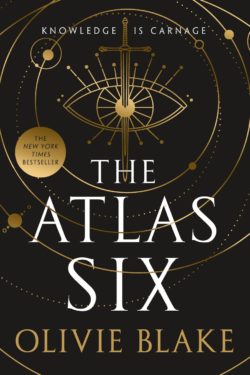 The Atlas Six
The Atlas Six Mistborn: Secret History
Mistborn: Secret History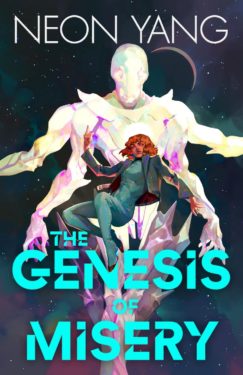 The Genesis of Misery
The Genesis of Misery Growing Up Weightless
Growing Up Weightless The Witch in the Well
The Witch in the Well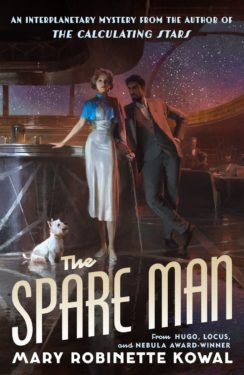 The Spare Man
The Spare Man Mystic Skies
Mystic Skies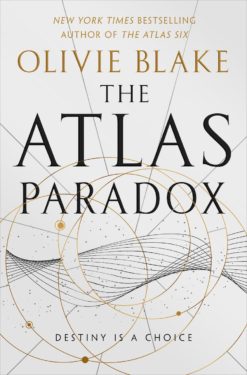 The Atlas Paradox
The Atlas Paradox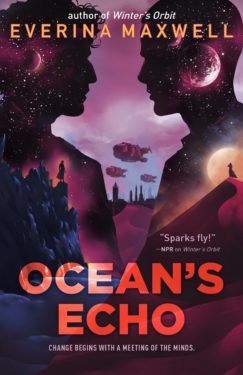 Ocean’s Echo
Ocean’s Echo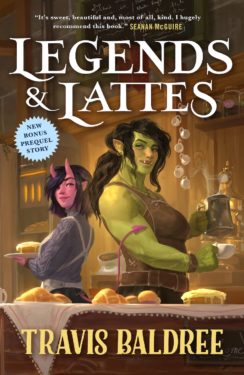 Legends & Lattes
Legends & Lattes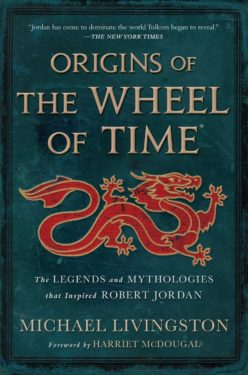 Origins of the Wheel of Time
Origins of the Wheel of Time Blood Moon
Blood Moon The Fifth Head of Cerberus
The Fifth Head of Cerberus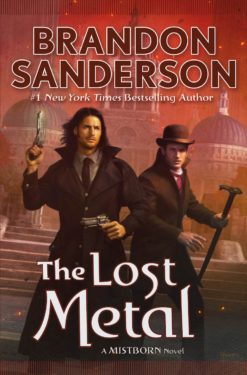 The Lost Metal
The Lost Metal Alone With You in the Ether
Alone With You in the Ether


 The Black Company
The Black Company Worlds of Exile and Illusion
Worlds of Exile and Illusion Up Against It
Up Against It Mythago Wood
Mythago Wood Growing Up Weightless
Growing Up Weightless The Fifth Head of Cerberus
The Fifth Head of Cerberus